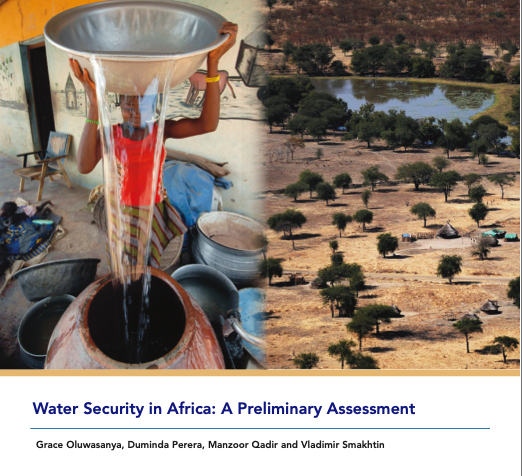New Africa Assessment: Slow To No Progress
Water Security Levels Very Low Throughout Continent
3 May 2022 by The Water Diplomat
HAMILTON, Canada

A new first-of-its-kind assessment of water security in Africa, produced by the UN University, reveals that in the past three to five years, only 29 countries have made some progress, while the remaining 25 have made no progress at all.
The UN’s concept of water security considers how much water is available but also how well it is managed. However, there is no universally accepted standard for water security and the researchers have developed their own approach based largely on indicators drawn from SDG 6.
Water must meet a number of needs and conditions including: water for drinking, economic activity, ecosystems, governance, financing, and political stability.
At the outset of the report, the authors point out that the assessment is limited by the lack of reliable data and that some of critical components of water security could not be assessed without introducing second-best surrogates. Progress is difficult to assess. The report calls for national governments to take immediate action to improve data collection. Without reliable data, the assessment warns that progress towards SDG 6 targets can only be “guesstimates”.
The authors maintain that water data availability itself should be seen as an indicator in future water security assessments.
Ten complementary and interdependent components of water security were measured by one or two indicators, which were quantified using public databases. Each indicator had a maximum score of 10, and the total score for national water security is calculated as the sum of individual indicator scores, with a maximum possible score of 100.
The assessment introduced five stages of water security: Emerging (an overall score of 0 – 45), slight (45 – 60), modest (60 – 75), effective (75 — 90), and model (90 – 100).
Using this methodology, the results are alarming: overall levels of water security in Africa are low. The top five countries were measured as having only “modest” water security. Egypt, with the highest score of 70, was the highest ranked throughout the continent. Only 13 countries achieved a “modest” level score; over one-third hold “emerging” level scores.
Without water security, people are exposed to environmental and health risks, increased susceptibility to water-related disasters and lack water for economic and social use.
In addition, the assessment observes that the situation does not appear to be improving very quickly. Between 2015 and 2020, the continent as a whole progressed only by 1.1% based on the indicators.
The assessment aimed to create a quantitative starting point and a platform for subsequent discussions with national. It is anticipated that as the tool develops, it can generate targeted policy recommendations and inform decision-making and public-private investments toward achieving higher water security in Africa.
Related Topics
3 Apr 2022 DAKAR, Senegal
Groundwater, according to the WWDR 2022 report, has tremendous potential to satisfy social, economic and environmental needs, as well as being a vital resource to increase resilien...
30 Mar 2022 CAIRO, Egypt
Cairo Water Week is now scheduled for 16-19 October and willprovide a preparatory platform for COP 27 of UNFCCC. The Secretariat has issued a call for papers due before 15 April. H...
